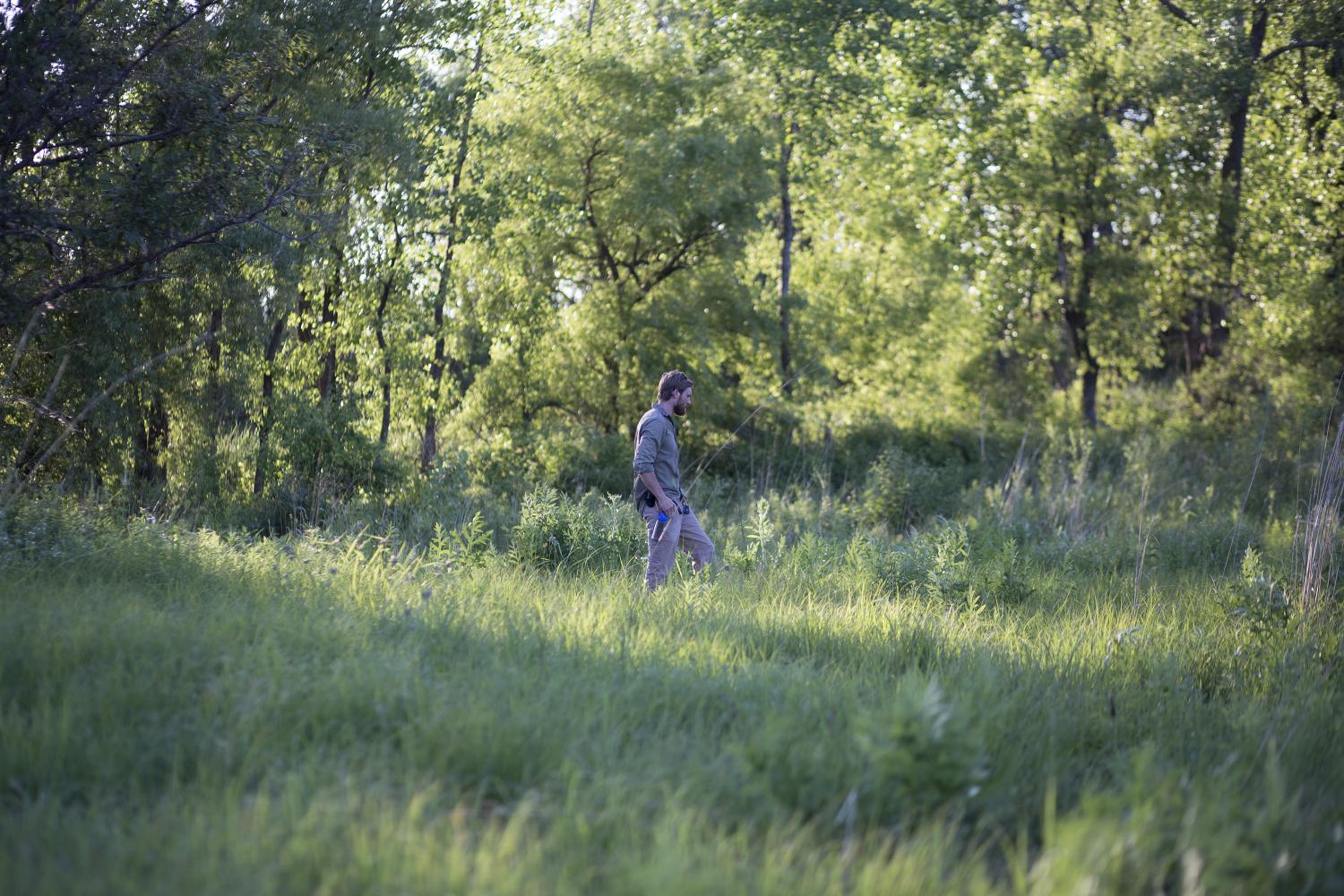Honey bees: Pollinating a better future for COD
May 11, 2017
After being awarded a grant from The Honeybee Conservancy, College of DuPage will soon implement its very own honey bee population on campus in hopes of educating students, supporting the local ecosystem and harvesting and selling honey.
The man who will be care for the bee is Remic Ensweiler. He is in charge of about 40 acres of natural area where he is in the process of restoring to it’s historical ecology. Ensweiler utilizes prescribed burns in the spring and the fall in an effort to restore the natural area and has already burned around 20 acres since he’s started. In order to control weeds, Ensweiler also conducts selective mowing, spraying pesticides (only when he has to), pulling weeds, and planting native plants in problem areas to minimize weeds.
The Honeybee Conservancy will be giving COD a queen and a colony of honey bees. Honey bees pollinate a lot of the things that we eat as well as COD’s own wildflowers, trees and other plants around campus. Out of all the 500 species of bees in the world, honey bees are the one species of bee that produces honey.
“We’re hoping that if the colony survives and thrives, that we’ll be able to harvest honey here and hopefully expand the operation and potentially either sell the honey or give it to the hotel, The Waterleaf on campus. We want the colony to survive first before we can start thinking big plans for long term,” said Ensweiler, the Outdoor lab/prairie manager at COD.
Ensweiler sees the honey bees as both being an interesting attraction for visitors and a learning opportunity for students as well. “What’s most exciting about it being here at COD is it’s not like we’re going for the most amount of honey, or we’re not trying to have this crazy honey operation,” Ensweiler said. “We want to be able to teach people at this college and involve students at this college in the process of beekeeping, the importance of beekeeping, the importance of keeping alive the pollinators. We have all this farmland going away, all this habitat of theirs being destroyed, that, yeah, I want to involve students as much as possible so that they can learn and teach others about the benefits of bee keeping.”
Once the operation is up and running,students can get a hands-on perspective of beekeeping by wearing the proper protection and helping with the operation.
The protective gear is more of a precaution than a guard against any imminent danger, Ensweiler said
“People think bees and they think, ‘I’m going to get stung.’ Honey bees are especially docile, they’re especially relaxed bees. The only way that they’re going to sting you is if you go up to the box (the bee hive) and start scratching at it, and bothering them. We’ve also built about a five-foot barrier around the box so that you can come up to it but not totally to it so that you couldn’t trip and mistakenly get stung.”
For those who are still jittery about bees coming to campus, Ensweiler said there are as many as 30 species already present, which proves people and bees can co-exist without any mutual fear. “(Honey bees) are just another species of bees that isn’t going to be harmful to people.”
In the future Ensweiler wants classes to be involved with the bees at COD. One professor even expressed an interest in teaching a beekeeping class. Ensweiler mentioned three important goals for the future of the bee program at COD. One goal involves expanding the population of the bee colony in order to have the best survival rate, the healthier the colony the larger it can grow to be. COD’s incoming bee population will include the queen bee along with roughly 500-1000 bees. The second goal is to expand the honey operation.
“We’d love to be able to represent COD through local honey. Local honey has a lot of benefits the main one being if people have allergies, they get exposed to the things they have allergies from, because the bees go to these flowering things and pollinate them and then they use that to construct their honey. So when you eat the honey, you’re essentially getting vaccinated to what you could potentially be allergic to.” The third goal is an effort to be a leader in the region for learning in the beekeeping process.
“That involves professors teaching it, and workshops, tours, and all that.” Ensweiler said.
Follow the bee program at COD @codnaturalareas on Facebook and Instagram to keep up to date on the bees and COD’s other natural areas activities.


















